‘I was shot by the Burger Bar Boys in Birmingham & my twin sister was killed - it still hurts today’
and live on Freeview channel 276
Sophie Ellis’ twin sister Charlene was murdered by members of the Burger Bar Boys during a drive-by shooting in Aston, Birmingham, at a party on New Year’s Day 2003.
Letisha Shakespeare was also murdered and Sophie was shot and severely injured. It was a crime that shocked the nation - and the after effects are still felt among the community to this day.
Advertisement
Hide AdAdvertisement
Hide AdSophie and Charlene’s father was Arthur ‘Super D’ Ellis, the founding member of rival Birmingham gang, The Johnsons. Four men were each convicted of murder and attempted murder at Leicester Crown Court in March 2005 - but have continued to appeal against their sentences.
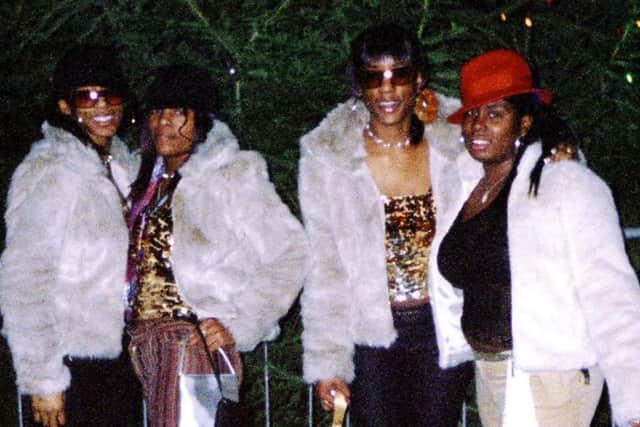

Sophie says the families were targeted by the Burger Bar Boys after the convictions. Twenty years after the horrific drive-by shooting that changed her life, she has spoken about her experiences which are being featured in a new new BBC 5 Live podcast called Gangster, with a six part series, about the Burger Bar Boys.
Sophie said: “I saw the gun outside the window. Before you knew it, I found myself on the ground. I knew that I was shot because I was in agony. People were screaming and running around and it was horrific. I thought it was just me at the time.
“The choices that they made that night, obviously I’m a living consequence of that. I woke up one day and then lost my life. I lost my twin sister. My life has never been the same. I had to learn to walk again because I was in bed for so long, I lost a lot of blood.
Advertisement
Hide AdAdvertisement
Hide Ad“So it really was a journey. It’s life changing, I still suffer with those injuries today. Some of them are lifelong injuries. I am grateful that I’m still here, but nothing can replace the fact that my twin sister is not here. So it’s life changing, very detrimental.”


Marcus Ellis, 24 (Charlene’s half-brother), Michael Gregory, 22, and Nathan Martin, 26, were jailed for a minimum of 35 years for murder and attempted murder. Rodrigo Simms, 20, was sentenced to 27 years – the lesser figure being due to his age at the time of the shooting. The trial was the first in England at which secret witnesses were allowed to be used.
In 2005, the convicted men appealed at Woolwich Crown Court but the appeal was turned down. They were also refused leave to appeal to the House of Lords. In 2012, Ellis, Martin and Simms appealed to the European Court of Human Rights that they had not received a fair trial. This appeal was also dismissed.
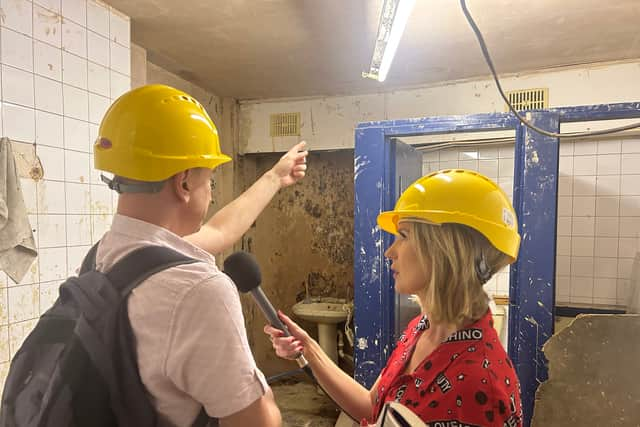

Speaking about those convictions Sophie said: “When they got convicted, I remember my car being smashed. Windows being smashed. We had to press the panic alarm for the police to come, because obviously they knew where we lived at the time.
Advertisement
Hide AdAdvertisement
Hide Ad“And then there’s been times when I’ve been in church and people are making comments like, oh, that’s the girl that got my people. Like I’m the one that pulled the trigger. I think they should just continue to do their time and stop wasting our time. We’re trying to live and do the best that we can do to try and move forward. But they keep trying to appeal and it’s never going to happen.”
When did the Burger Bar Boys gang start in Birmingham?
The Burger Bar Boys rose to prominence following Birmingham’s Handsworth race riots of the early 1980s before evolving into the brutal drug-running, machine-gun wielding outfit of the 1990s.
From their humble origins in a Burger Bar on Soho Road, where the gang used to meet and the birth of the Johnson Crew in the nearby Johnson’s café, the BBC podcast series hears from those living in the epicentre of the violence - teachers involved in keeping children away from the streets and doctors who became experts in treating gun wounds talk about how both gangs left a trail of destruction as they battled for supremacy across the city.
The BBC podcast is presented by investigative journalist Livvy Haydock, who also interviews police officers - including Dave Mirfield - and journalists - including Amardeep Bassey - who were involved in the Burger Bar Boy investigation.
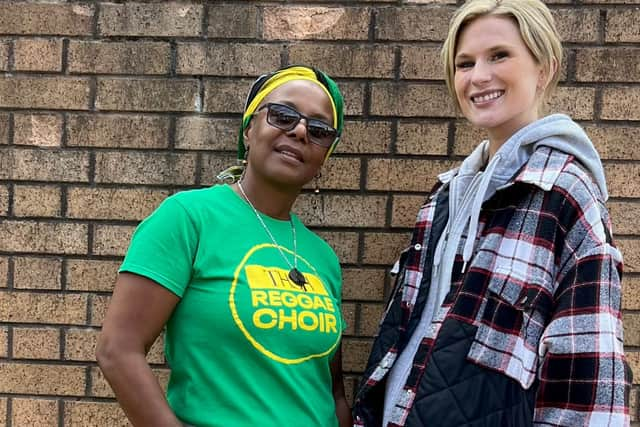

‘The pressure was huge’ - Senior police investigator for the Burger Bar Boys murders
Advertisement
Hide AdAdvertisement
Hide AdDave Mirfield was the senior investigating officer with West Midlands Police and was responsible for the convictions of four members of the Burger Bar Boys. He said: “There was an element of pride of being asked to do it because it was one of the biggest cases that Birmingham had seen for a long time, but trepidation.
“There was an element of worry, concern and then the next thought that comes to mind is - I’ve got to meet the parents, I’ve got to meet the family because whilst I’m the man who’s got to catch these people, they’re going through this terrible trauma. The pressure was huge and I rang home and I just said to my wife, you might not see me for a while.
“It would appear that everybody was either in the toilet or working behind the bar when the shooting happened. I do get the fear and I understand when everybody knows where you live. One of the mums had her windows shot out and that is the intimidation that comes with it.
“I’ve never had a moment like it. I sat in front, on the bench in court. The mums and their families sat behind. When that word came out of the foreman’s mouth, guilty, there was a minuscule second and then the family erupted, absolutely erupted.
Advertisement
Hide AdAdvertisement
Hide Ad“They were slapping me on the back and I could feel the bangs. It was like a party almost, which was strange. And the judge had to calm things down and we had to go out because they were screaming and shouting with elation because the relief suddenly went. The defendants just sat there, just impervious to it, just weren’t bothered by it. There was no head bowing. There was nothing. They just sat there.”
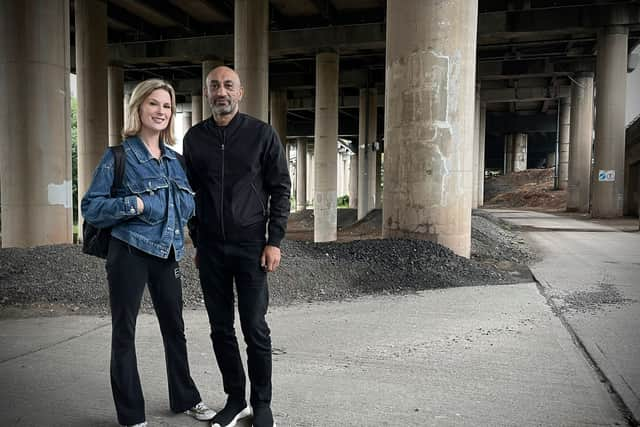

‘The Burger Bar Boys terrorised their own community first’ - Birmingham journalist who first named the gang in a newspaper particle
Amardeep Bassey spent two decades working as a crime reporter for the Sunday Mercury and was the first journalist to name the Burger Bar Boys in a newspaper article.
He said: “The Burgers were a stain. They terrorised their own community first. The first victims were black people, in fact, they’re almost exclusively black people in their own area. And again, because the trust in the police was zero a lot of the community were totally terrorised.
“Some people have romanticised the gangs as if they were some kind of Robin Hood figures, no, they weren’t. They were spending their money on themselves. They weren’t enriching the area in any way.
Advertisement
Hide AdAdvertisement
Hide Ad“There was a figure who almost had mythical status. He was supposed to be impervious to bullets because a witch doctor had given him some spell. I mean, the man had been shot at least half a dozen times and survived so you can see why people might of thought he some kind of Batfinx where his wings are impervious to bullets or something.
“It says a lot that in the end, the police had to change a thousand years of common law to enable their only witness to take part in the trial. It was a reflection of the relationship between the black community and the police that out of the 100 witnesses who saw these girls being shot, not a single one of them was prepared to go to court.”
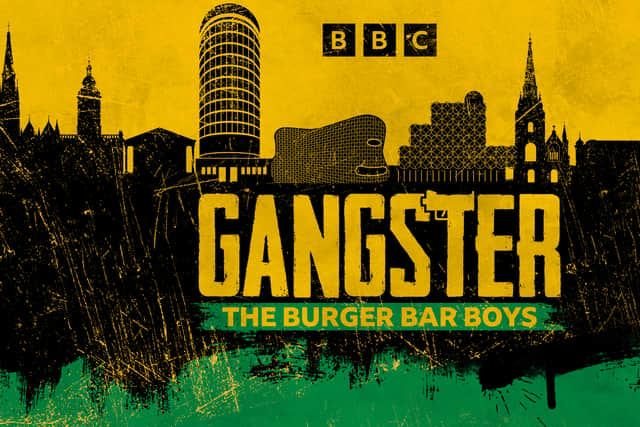

How can I listen to the BBC Gangster podcast about the Burger Bar Boys
The first two episodes of the six-part BBC Five Live Gangster series will be available to hear on BBC Sounds on Friday (November 3), taking listeners on a journey of guns and gangs which spans more than two decades. You can listen to a preview here: BBC Gangster podcast about the Burger Bar Boys
